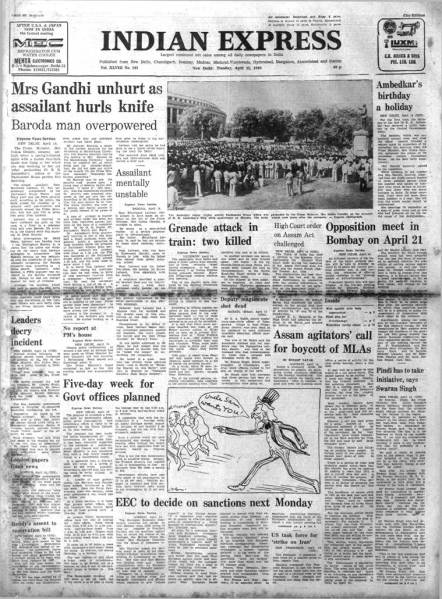 The Indian Express front page, April 15, 1980.
The Indian Express front page, April 15, 1980.
Assam is unusually quiet. No processions, no slogans, no satyagraha except ritualistic picketing at the Narengi installations. The barricade outside the deputy commissioner’s office in Gauhati is gone and even the students union office, a centre of activity for the past seven months, wears a dull look. It may well be a lull before the storm. The people appear to be waiting for a word not from Indira Gandhi, who has formally conveyed to the agitation organisers that 1971 is a starting point to assess the size of the foreigners problem. Most student leaders have spread out to different parts of the state to discuss the next step at the grass roots and will assemble in Gauhati for their executive meeting on April 18.
Broad Consensus
An informal conclave of top leaders of the major political parties will be held in Bombay on April 21 to assess the current political situation and, in that context, the relevance of offering a united challenge to the “growing trends of authoritarianism”. The conclave, for which enough ground work has been prepared over the last few days, is expected to seriously examine the possibility of uniting various opposition groups to face the Congress (I). Though nothing significant is likely to emerge from this meeting, it is almost certain that a broad understanding, so far as facing the assembly elections in nine states, will emerge at the meeting.
Indira Attacked
Prime Minister Indira Gandhi escaped unhurt when a spring-actuated knife with a rusted four-inch blade was flung at her while she was walking to her car after garlanding B R Ambedkar’s statue in the Parliament House garden. The alleged assailant, Ram Bulchand Lalwani, 37, was immediately overpoweredby security staff. According to the police, the knife grazed the shoulder of a security staff sub-inspector and narrowly missed the prime minister.